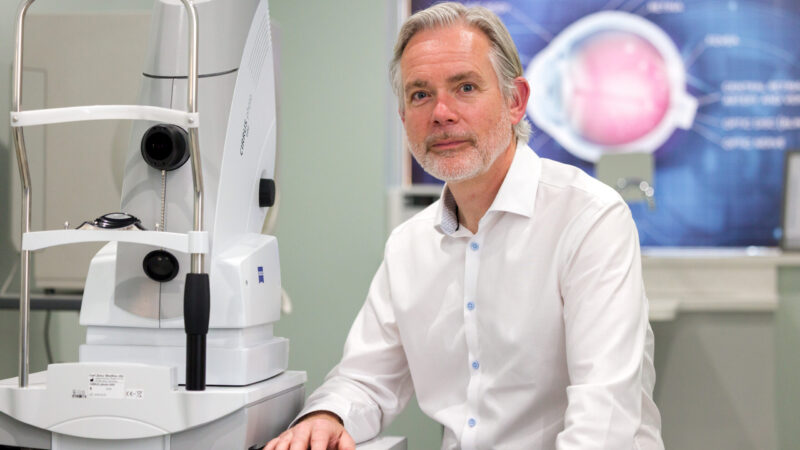
We asked Stuart Humfrey, a local Optician practicing in Essex, to share some advice on how we can look after our eyes this National Eye Health Week. Here’s what he had to say:
As an optometrist with over 35 years of experience, I’m delighted to support National Eye Health Week (22-28 September 2025).
According to Vision Matters, sight is the sense people fear losing the most, yet many of us don’t know how to look after our eyes – National Eye Health Week aims to change all that!
The Power of Regular Eye Tests
More than 2 million people in the UK live with significant sight loss, yet it’s estimated half of this could have been avoided. Regular eye examinations aren’t just about updating your prescription – they’re your first line of defence against sight-threatening conditions.
During a comprehensive eye test, I can detect early signs of glaucoma, macular degeneration, and diabetic retinopathy, often before you notice any symptoms. Early detection means early treatment, which can preserve your vision for years to come. Over the year I’ve also spotted signs of other health conditions – like diabetes, high blood pressure, eye tumours and even brain tumours during routine examinations. Your eyes truly are windows to your overall health.
Nourish Your Eyes Through Food
What you eat directly impacts your eye health. I always tell my patients to think colourful when planning meals. Dark leafy greens like spinach and kale are packed with, powerful antioxidants that protect against macular degeneration. Omega-3 rich fish such as salmon and mackerel support healthy retinal function, while orange vegetables like carrots and sweet potatoes provide vitamin A for good night vision.
Keep Moving for Healthy Eyes
Exercise benefits your eyes in ways many people don’t realise. Brisk walking, cycling, dancing, and swimming all help reduce intraocular pressure and improve blood flow to the optic nerve, which can help reduce the risk of developing glaucoma.
Aim for at least 30 minutes of moderate activity most days. What counts as moderate? Exercise that feels challenging, but not exhausting. You should be able to talk as you do it!
Ideas to help you get activeStubbing Out the Risks
Smoking dramatically increases your risk of age-related macular degeneration, cataracts, and diabetic retinopathy. It also reduces blood flow to the eyes and damages the delicate blood vessels in your retina. The good news? These risks start decreasing as soon as you quit.
Guide to local stop smoking servicesAlcohol and Your Eyes
Excessive alcohol consumption can lead to nutritional deficiencies that affect your vision, particularly vitamin A and thiamine deficiency. Heavy drinking is also linked to increased risk of cataracts and age-related macular degeneration.
Tips to help you reduce alcohol intakeScreen Time Solutions
With our increasingly digital lives, screen fatigue is becoming epidemic. Follow my 20-20-20 rule: every 20 minutes, look away from your screen for 20 seconds at something 20 feet away. (20 feet is less than the length of a London bus!)
This simple habit reduces eye strain, dryness, and fatigue significantly.
UV Protection is Essential
Just as you wouldn’t leave home without sunscreen on a bright day, your eyes need protection too. When the UV index reaches 3 or above, wear quality sunglasses that block 99-100% of UV rays. This protects against cataracts, macular degeneration, and even eyelid cancers.
Your Vision, Your Future
Remember: eat well, stay active, don’t smoke, protect your eyes from UV light, and book those regular eye tests. Your future self will thank you for the clear, healthy vision that lets you enjoy life’s precious moments.
Find out more about eye care services:
Information about local eye health services